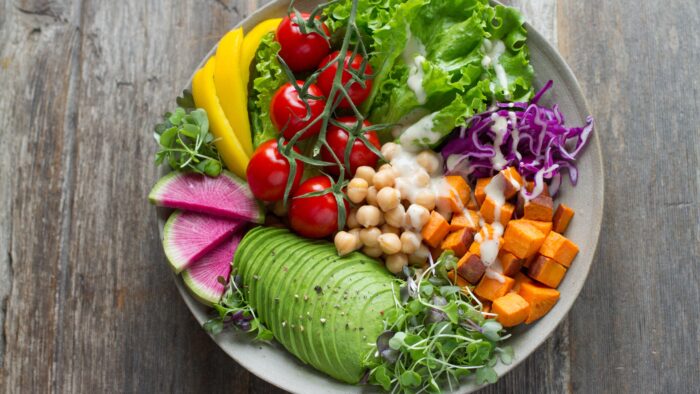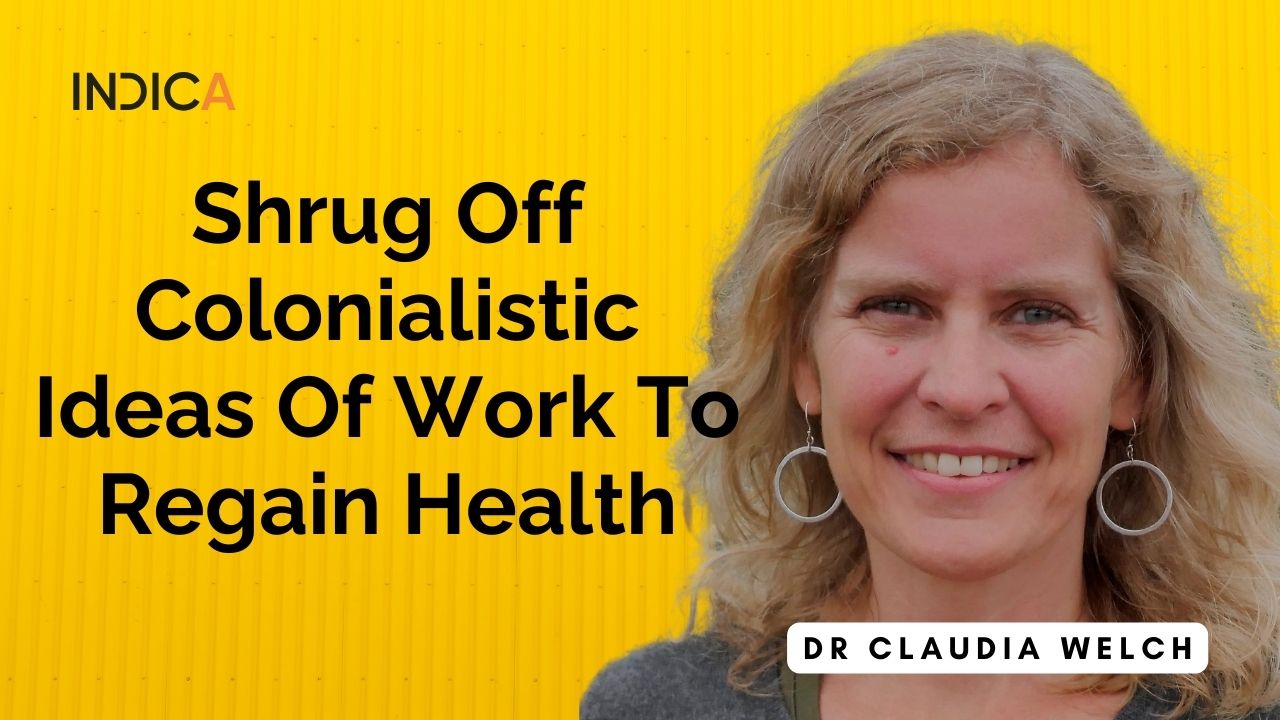For Brittany Barrett, Ayurveda was a life-changing experience. "I was diagnosed with severe anxiety and depression at the age of 16. Then at 21, I was diagnosed with Ulcerative Colitis - a debilitating digestive autoimmune condition. This diagnosis eventually prompted me to seek alternative forms of healing as the western doctors told me there was no cure for my disease. After adopting an Ayurvedic lifestyle, my colitis went into full remission”.
The cure offered by Ayurveda prompted Brittany to study this Indian science in greater depths and also practice it in her city, San Francisco in the US. She has been an Ayurvedic wellness coach and a chef for the past ten years now. In this interview with the Center for Soft Power, Brittany shares her experiences and recipes and tips for practicing Ayurveda.
How have you incorporated Ayurveda into your daily lifestyle?
My favourite thing about Ayurveda is that it doesn’t subscribe to a one size fits all model. Each person is unique physically, mentally, emotionally and spiritually. So we all need unique support in each of these four pillars of wellbeing. I have always been a very sensitive person. Ever since I can remember I have had an uncanny ability to read others and pick up on subtle emotions and energies.
However, it was only after being treated for Ulcerative Colitis, that I took a deeper interest in learning about Ayurveda. I was soon introduced to Ayurveda by Acharya Shunya, a Vedic spiritual teacher, and studied with her for 3 years. I have since continued to deepen my healing journey and branched out into additional healing modalities, completing a Yoga Nidra teacher training, a level 1 Reiki certification, and levels 1, 2 and 3 of Breathwork facilitation training. Through this work, I have witnessed amazing growth and transformation.
When I first started studying Ayurveda, I was very dogmatic and strict with my diet and lifestyle. My teacher comes from a long lineage of Ayurvedic healers in India, and she taught us how to be very disciplined both with our diet and daily routine. As a westerner without any prior knowledge of what it meant to take care of yourself in a healthy way, I believe I needed this rigid discipline in order to heal from my chronic digestive disease. Now I have loosened up a bit.
I still use Ayurvedic principles, like eating foods that are best for my dosha, following seasonal dietary protocols, making sure I only eat when physically hungry to mind my agni (digestive fire), exercising at appropriate times, and following morning and evening rituals. However, I have tweaked my practices throughout the years and have eased up a bit with my discipline since I am healthier now. For instance, I really love ice cream, and I used to never let myself have it. Now I will have a small amount every once in a while, but only when the weather is warm and I am feeling that my digestion is strong.

How do foods affect emotional wellbeing? Is it important to only stick to diets in accordance with one’s doshas?
If we eat foods that have been heavily processed or sitting on a shelf for months on end, we are consuming foods that are lacking in vital energy or prana. This can lead to feeling dull, lethargic, and can cause sluggish digestion which can result in “dis-ease” in the body and unhealthy weight gain. When we consume fresh foods that have been grown with intention and prepared with loving energy, we will receive more prana from our food. This will help us to feel more energized, and help our body to heal and balance our mind as well. Ayurveda has known about this connection for thousands of years. There have also been multiple scientific studies over the past several years that have shown a strong correlation between gut health and mental health.
It is also important to look at the climate you are currently living in, and also where your genetic lineage is from and take both of these factors into consideration. For instance, if both of your parents have grown up in a culture where very spicy foods are consumed, you may have a higher tolerance for spicy food even if you currently live in a hot climate. For someone else who did not grow up with that tolerance for spicy food, they should eat more cooling foods if they live in a very hot climate.
For someone who is relatively healthy, I always tell my clients to follow the 85/15 rule. Try to eat foods that are best for your dosha 85% of the time, it's ok to veer off the path 15% of the time. If you are suffering from a major disease, and need some relief right away, aim closer to 100%.
What are some common misconceptions that you hear about the Ayurvedic diet, and how do you address them?
One misconception about Ayurveda is that it is all about restriction. It’s actually more about finding foods that you love that are most beneficial for your body and opening up your horizons to try new things. Ayurveda is like a road map that can help you understand why certain foods will be more or less beneficial for you.
Another misconception is that certain foods that are trendy, are good for everyone when in reality every food can be a medicine or a poison. Since each person has a unique constitution, it is important to not just follow diets that are trending but to listen to how your body reacts and responds to different foods. The Western mindset is trained to think in black and white, good v. bad. I try to educate people by explaining the principles around the qualities of foods and how they impact the body and mind so people can understand that Ayurveda is not a one size fits all modality.
Some people think that in order to follow an Ayurvedic lifestyle you need to eat all Indian food. This is not correct. Although Ayurveda originated in India, it is a universal science and the principles can be applied to all types of cuisine. I feel very lucky to live in the San Francisco Bay Area, where there is a large variety of local and organic produce available at the farmers' market. I try to purchase most of my produce there so I know that I am aligning with what mother nature is naturally producing.
For example, I am craving Italian food, I can follow Ayurvedic principles to make it more digestible and be sure to avoid certain ingredients that may aggravate my dosha. As a pitta (fire and water) dominant person, I know that tomatoes and peppers heating. Instead of a tomato based marinara sauce, I make my own green sauce with more cooling vegetables and agni boosting Italian spices.
Here is one of my go-to summer recipes of Pasta With Green Sauce. Serves: 4
Ingredients
- 1 white onion
- 3 green zucchini
- 2 carrots
- 2 T. Parsley
- 1⁄2 bunch Fresh Basil 1 tsp. Oregano Veggie broth 1/2 cup
- 2 T. Olive Oil
- Himalayan pink salt
- 1 box Pasta of choice (lentil pasta is one of my favs)
Directions
- Wash all veggies and chop onions and carrots. Sauté carrots and onions together in a large pot with olive oil on medium high heat for 5 min. Add the zucchini, parsley, basil, oregano, salt and veggie stock. Cook on low medium heat for about 12 minutes, covered.
- During this time, cook the pasta in a separate pot.
- Transfer veggies and broth into a blender and blend until smooth.
- Pour green sauce over cooked pasta and sprinkle with shaved parmesan cheese.

In your experience as an Ayurvedic wellness coach, how has an Ayurveda-based diet helped your clients?
I have been an Ayurvedic wellness coach for over 10 years now, and continue to be blown away by how much healing can happen by changing one’s diet and lifestyle. It’s not easy to make these changes. It takes a lot of time and energy to cook most of your meals and commit to a morning and evening routine.
I have helped people with MS, obesity, depression, anxiety, hormonal imbalances, eating disorders, IBS, IBD, skin issues, and many other diseases and have watched their lives transform as they learn how to take impeccable care of themselves. At the end of the day, Ayurveda is really about reparenting yourself. Most of us weren’t taught how to take care of ourselves with this much attentiveness and love. Through understanding what we need and taking out the time to give that gift to ourselves we begin to heal in ways we never could have imagined.
Here are a few simple steps of self-care that can be followed in our day-to-day lives.
Pay attention to how you feel after you eat different foods. If you know that you feel great after eating oatmeal for breakfast, do that! If you feel heartburn after you drink a glass of wine, your body is trying to send a message. Do yourself a favour and listen to what your body is trying to tell you.
Only eat when you are physically hungry. When we eat when we are not hungry our body doesn’t know what to do with that food and it can cause a slew of issues with our digestion which can eventually lead to disease.
Sip water throughout the day, don’t chug it. Just like plants, everyone needs different amounts of water.
Start practicing a morning routine. Even if it’s really simple, taking that time for yourself will help set you up for success the rest of your day. Here are some examples of things you can do in the morning. Try starting with 1-3 practices and see how you feel,
- Sip a cup of hot lemon water: it’s like a shower for your internal organs
- Sit outside or at your altar for 10 minutes quietly and just focus on breathing.
- Take a 20 min silent walk and enjoy the sights and sounds of nature.
- Make yourself a delicious breakfast that feels good in your body.
- Oil your body and take a shower after. You can start off just using jojoba oil and once you know your dosha you can switch your oil accordingly.
In general, just check in with yourself a lot. Ask yourself what you truly need in that moment, and offer it to yourself with love. Something as simple as cutting an itchy tag out of your shirt can be an act of self-healing.
Is Ayurvedic eating becoming popular in the US? Are there dedicated eateries serving only Ayurvedic meals?
Ayurveda is becoming more popular in the US, however, I am surprised there are not many restaurants that are only serving Ayurvedic meals. There are a few items that have become popular like “golden milk” but lots of folks use non-dairy milk which defeats a lot of the medicinal value of the cow’s milk. In general, it feels a little trendy here and as someone who highly reveres the science and the history of Ayurveda, it’s frustrating for me when folks miss the mark.
Feature Image: Anna Pelzer via Unsplash





